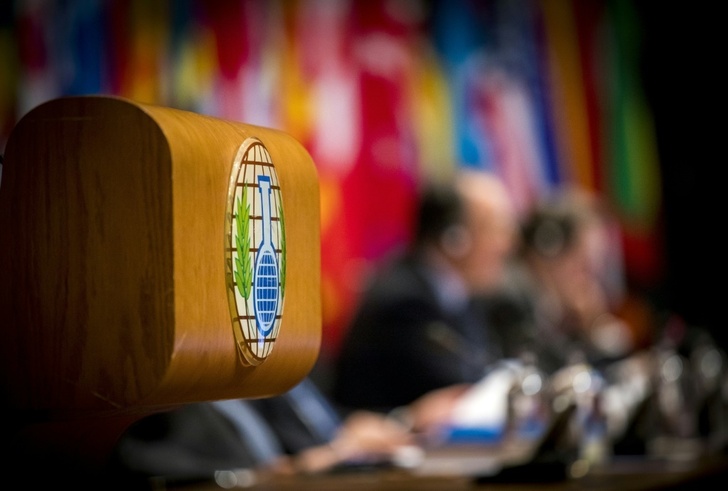The world's chemical weapons watchdog on Friday failed to agree a roadmap for the next five years because of deep divisions between Western powers, and Russia and Syria.
Member states of the Organisation for the Prohibition for Chemical Weapons (OPCW) meet every five years to assess progress on a 1997 agreement to rid the globe of toxic arms.
But the 193 countries could not nail down a deal after this week's meeting in The Hague, during which Moscow and its allies traded barbs with Western states.
"You have done your best to reach a consensus but this was not possible," said OPCW chief Fernando Arias.
"The consequence is that we will not have this much desired final outcome document."
It is the second time running that the five-yearly meeting has failed to agree on a final document setting out priorities for the Nobel Peace Prize-winning body.
With the United States set to finish destroying the world's last remaining declared chemical arsenal by September, the OPCW had hoped to reach agreement on its future role.
This would include preventing the re-emergence of chemical weapons, after an OPCW investigation concluded that Syria's military had since 2013 repeatedly used them during its civil war.
- Syrian army accused -
The watchdog also found that the Soviet-era nerve agent Novichok had been used against former Russian spy Sergei Skripal in Salisbury, England in 2018; and against anti-Kremlin dissident Alexei Navalny in Russia in 2020.
"Once again a small number of States demonstrated disregard for multilateral negotiations and refused to compromise," said the Irish embassy said in a statement after this week's meeting.
British Ambassador Joanna Roper expressed her regret at the outcome.
The meeting began on Monday with a warning from UN disarmament official Izumi Nakamitsu that the recent use of toxic weapons in Syria, Russia and Britain "threatens to unravel hard-won gains" since the 1997 Chemical Weapons Convention.
Only four countries -- Israel, Egypt, North Korea and South Sudan -- have failed to ratify the convention.
During the meeting, Russia on Monday accused the West of "politicising" the organisation, in particular by adopting new powers allowing it to name the Syrian military as the culprits for a number of chemical attacks.
Syrian President Bashar al-Assad was welcomed back to a summit of Arab leaders on Friday despite the allegations of chemical weapons use against his forces.
dk/jhe/jj
© Agence France-Presse
Your content is great. However, if any of the content contained herein violates any rights of yours, including those of copyright, please contact us immediately by e-mail at media[@]kissrpr.com.
Source: Story.KISSPR.com

